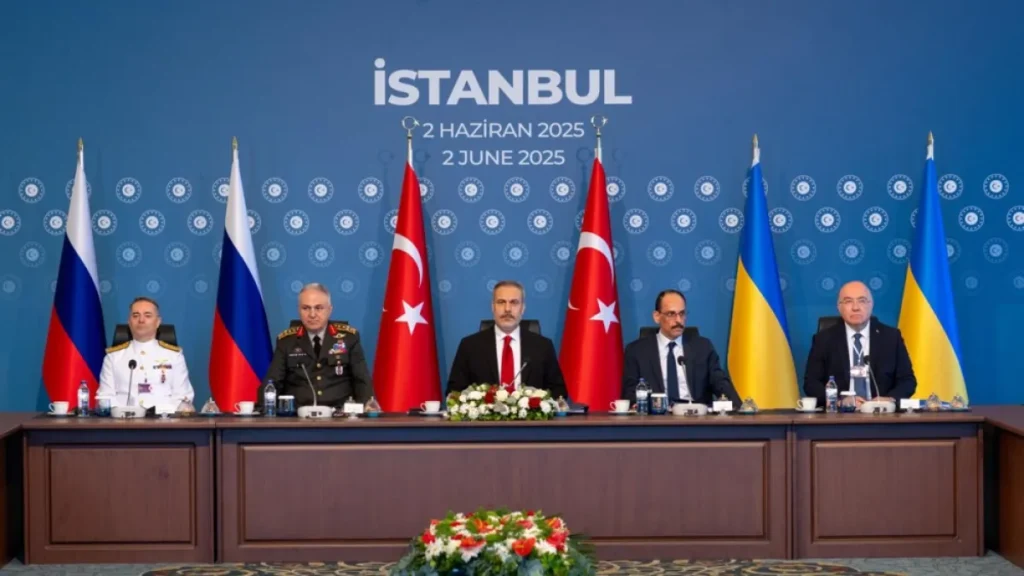Peace remains elusive after a second round of talks between Ukraine and Russia, held in Istanbul, as the two sides failed to achieve a major breakthrough in ending the ongoing war. However, they agreed to a humanitarian gesture a prisoner swap involving the sick, severely wounded, and those under the age of 25.
Ukraine’s negotiating team, led by Defence Minister Rustem Umerov, reiterated its demand for a “full and unconditional ceasefire” lasting at least 30 days to halt ongoing violence. Umerov criticized Russia for rejecting this core demand, saying Moscow only presented its truce proposal at the talks, despite Kyiv having submitted theirs earlier.
The Russian side, represented by delegation head Vladimir Medinsky, claimed it had offered a limited two-to-three day truce in specific areas along the sprawling front line. However, no specific locations or timelines were disclosed. Medinsky confirmed the planned prisoner exchange and added that Russia would soon return the bodies of 6,000 Ukrainian soldiers to Kyiv.
Despite some signs of progress on humanitarian fronts, the broader political gaps remain vast. Ukraine’s Deputy Foreign Minister Serhiy Kyslytsia said Kyiv expects a formal response to its ceasefire proposal by the end of June and emphasized the need for direct presidential talks between Volodymyr Zelensky and Vladimir Putin.
The war, now in its third year, has left tens of thousands dead and displaced millions. Russia continues to occupy approximately 20% of Ukraine’s territory, including Crimea, annexed in 2014.
While Ukraine and its Western allies demand Russia’s complete withdrawal and an end to hostilities, Moscow appears focused on consolidating gains. President Zelensky and European leaders have accused the Kremlin of using the peace talks as a stalling tactic to advance militarily.
Meanwhile, former U.S. President Donald Trump, who has pushed for a swift resolution, recently criticized Putin as “absolutely crazy” after a wave of Russian attacks. The Kremlin dismissed Trump’s remarks as signs of “emotional overload.”
With both sides entrenched in their positions, hopes for a comprehensive peace deal remain dim, though the prisoner exchange provides a glimmer of humanitarian relief amid the stalemate.

